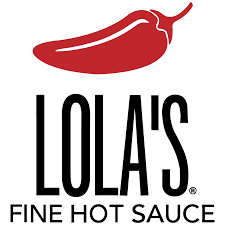UPDATED: Krause Group offers to help city redevelop contaminated site south of downtown Des Moines
‘We’ve always thought a stadium was a good reuse of that site,’ says Des Moines official

KATHY A. BOLTEN Oct 1, 2020 | 9:25 pm
3 min read time
697 wordsAll Latest News, Government Policy and Law, Real Estate and Development
A group that is working to bring a United Soccer League Championships franchise team to Des Moines is offering to move a stadium proposed for south of downtown Des Moines about two blocks west to the former Dico Inc. site, which has been unoccupied for 25 years because of ground contamination.
Krause Group and Iowa Soccer Development Foundation Inc. are offering to partner with the city to redevelop the 43-acre toxic site into an outdoor entertainment area that would include a stadium for soccer and other events, according to a letter released today by the city.
“We aim to create an activated district that spans the entire year with sporting events, concerts, street festivals, and further connects downtown along the MLK Jr. Parkway corridor,” Gerard Haberman, Krause Group president, wrote in the letter to the city.
Krause Group, which owns Kum & Go, last year announced plans to build a soccer stadium just east of the former Dico site, located at 200 S.W. 16th St.
The former Dico property has been unused for 25 years as property owner Titan International Inc. fought the federal government over the cost to clean up the Superfund site and other issues. In September, Des Moines officials announced that the city would take ownership of the site, located at 200 S.W. 16th St., east of the Raccoon River and south of Martin Luther King Jr. Parkway.
About six years ago, Des Moines school district officials said they were interested in building a stadium on the contaminated site. That plan, however, never moved forward, and now the district is partnering with Drake University on a $19.5 million stadium on the university’s campus.
“We’re excited about this,” Matt Anderson, assistant city manager for Des Moines, said of the new plan for the Dico site. “We’ve always thought a stadium was a good reuse of that site.”
Even after the Environmental Protection Agency and the city of Des Moines do the planned remediation of the site, “it still will be a contaminated site,” Anderson said. “The reuse opportunities are pretty limited. But a stadium, being an outdoor use, is something we definitely want to pursue because it’s one of the few things that we think is actually viable on that land.”
The city of Des Moines doesn’t yet own the site and probably won’t for another year or so, Anderson said.
While the City Council in September approved signing a consent decree, the federal government hasn’t yet signed the order, Anderson said. And even after it does, a year or more of work must be done on the site to clean it up. The work includes tearing down dilapidated buildings and moving and updating equipment that monitors contamination levels in the ground and adjacent Raccoon River.
Anderson said Krause Group has a timeline to meet in which to get a stadium completed if it is to bring a USL franchise team to Des Moines. If the council on Monday directs the city manager’s office to work with the Krause Group on redeveloping the former Dico site, officials can begin discussing the proposal in more detail, he said.
If the site can’t be readied for redevelopment in time to meet deadlines for completion of construction of the stadium, then Krause Group will likely build the stadium on the site it already owns, Anderson said.
In its letter to the city, Haberman wrote that Krause Group would begin working on schematic designs this month and begin construction of a stadium by the end of 2021.
“Our intent is to develop this site and the surrounding district to include various uses designed to improve the experience on the Raccoon River and activate a portion of Des Moines that is primed for an economic boom,” Haberman wrote to the city. “This development will continue the grand vision the City has established by unlocking the riverfront and creating space where the community can engage with nature in an urban setting.”
Kyle Krause, chairman and CEO of Krause Group, has been working for more than a year to bring a United Soccer League Championships franchise team to Des Moines. He has owned the Des Moines Menace for 25 years.









